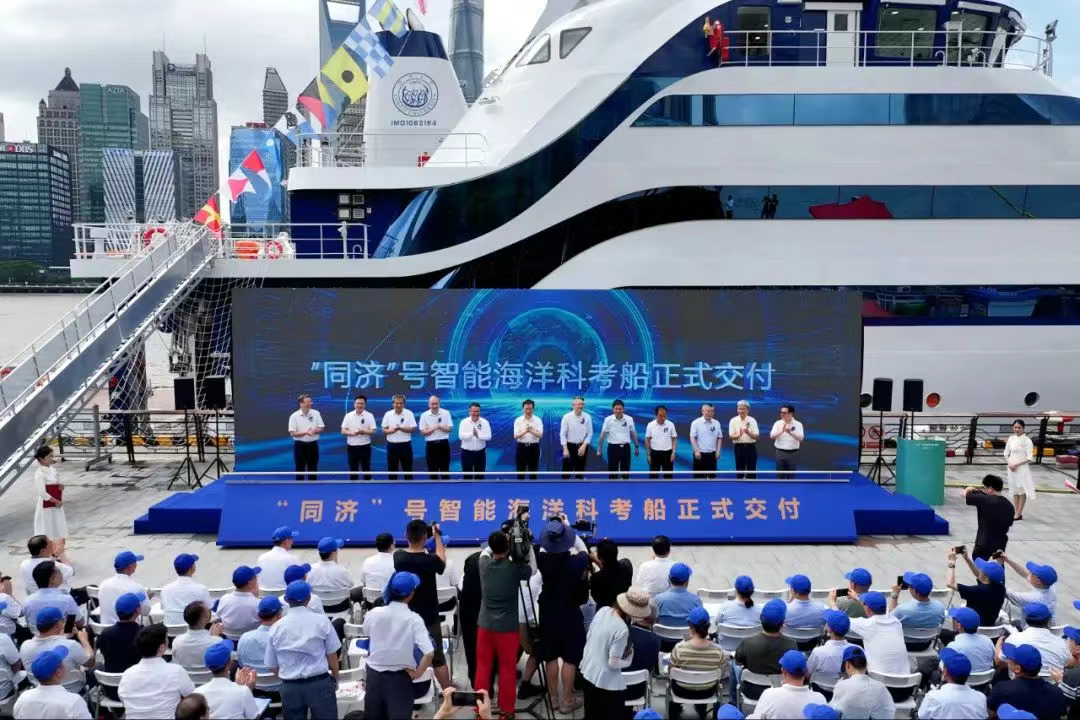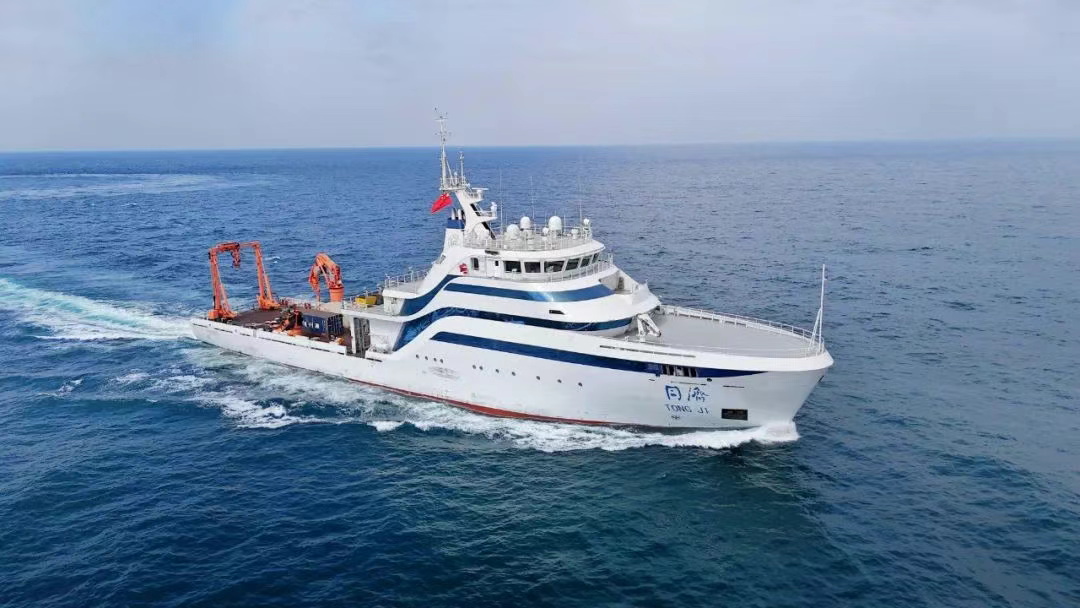On July 13, China State Shipbuilding Corporation Limited’s (CSSC) Huangpu Wenchong Shipbuilding Co., Ltd. delivered China’s first ocean-class intelligent scientific research vessel “Tongji” to Tongji University.

“Tongji” is a 2,000-ton new generation green, silent, intelligent comprehensive scientific research vessel, developed and designed by the China Ship Development and Design Center under CSSC. It integrates scientific research and investigation of marine geology, marine chemistry, marine biology, as well as scientific research, talent training, popular science education and cultural heritage. It is the “marine campus” that Tongji University has strived to build.
“Tongji” is 81.5 meters long, 15 meters wide, with a maximum speed of 16 knots, a cruising range of 8,000 nautical miles, a crew of 45, and a self-sustaining capacity of 35 days. The vessel uses a domestically produced full-revolving electric propulsion system, suitable for unlimited navigation areas (except ice areas). It is the first domestic ocean-class comprehensive scientific research vessel to obtain the four intelligent symbols of the China Classification Society (CCS) intelligent ship specification i-ship (R1, No, E, I), namely shore-based remote control, open water autonomous navigation, intelligent energy efficiency management and intelligent integration platform, and has built a full-link closed-loop system of “perception-decision-coordination-control”.

The vessel commenced construction in April 2024 and completed comprehensive sea trials in May 2025. Upon delivery, it will be used for scientific research expeditions by Tongji University’s marine science department and other institutions, offshore engineering construction tasks, and student maritime internships, providing equipment support for marine scientific research and the cultivation of marine-related professional talent.
As a “campus at sea” that integrates cutting-edge technology and multidisciplinary collaboration, “Tongji” will bring teachers and students an immersive learning experience from the classroom to the “mobile laboratory”.
The vessel can be equipped with a variety of modular containerized onboard laboratories, operational ROVs (remotely operated vehicles), drones, unmanned boats, and other mobile and fixed observation nodes that form a self-organizing network. Students can directly participate in tasks such as marine geological exploration, marine ecological sampling, and equipment testing. This “sail, experiment, and analyze” model transforms theoretical learning into practical, hands-on projects, greatly enhancing the depth of learning.


